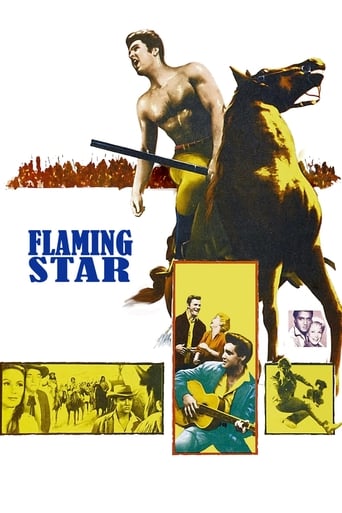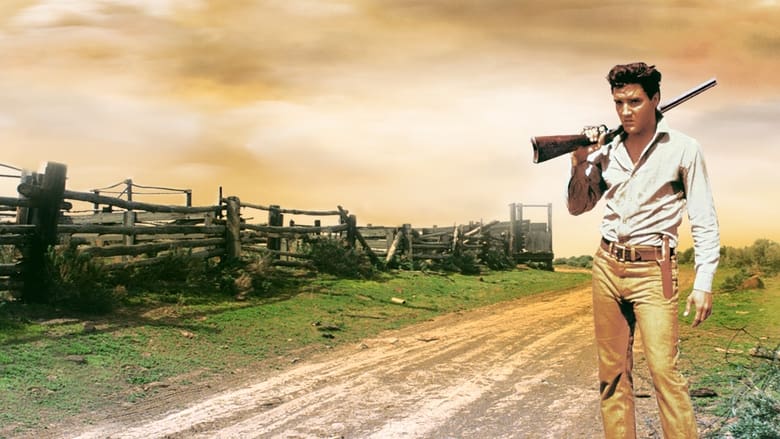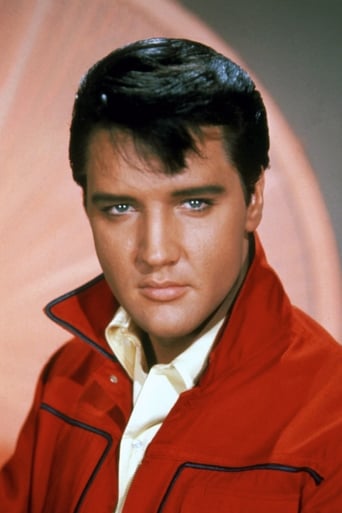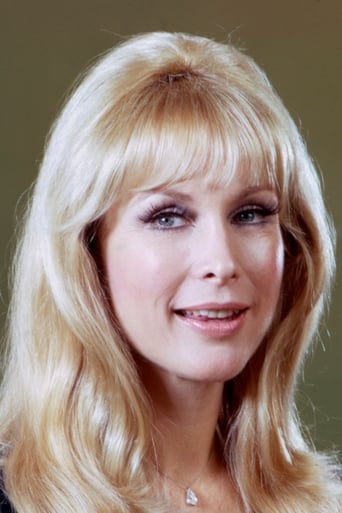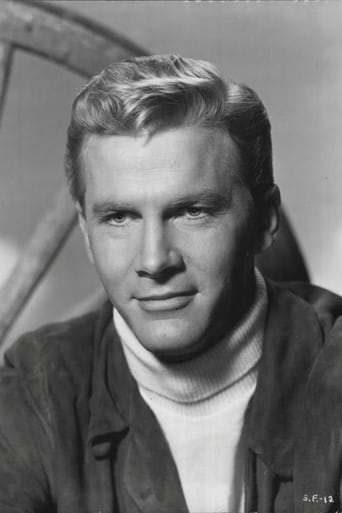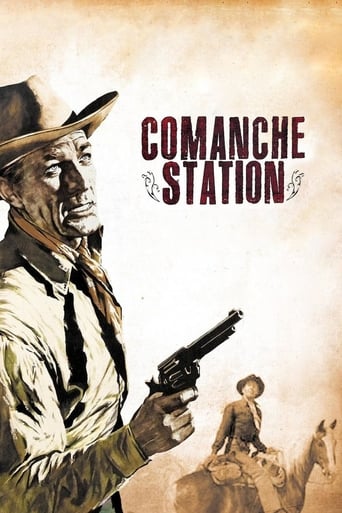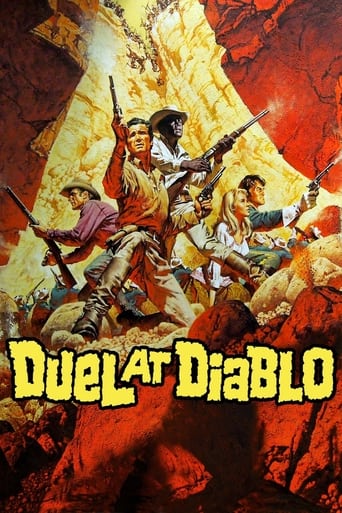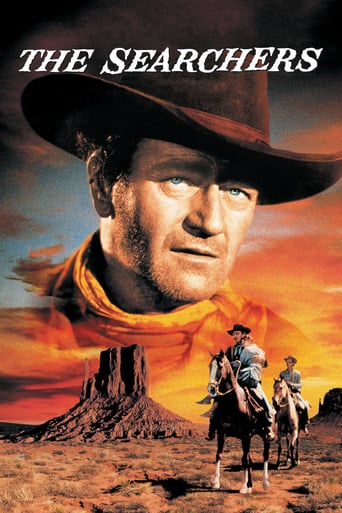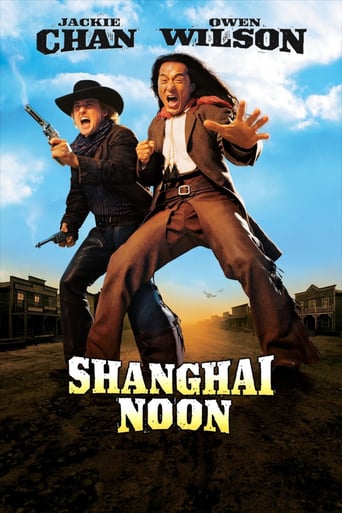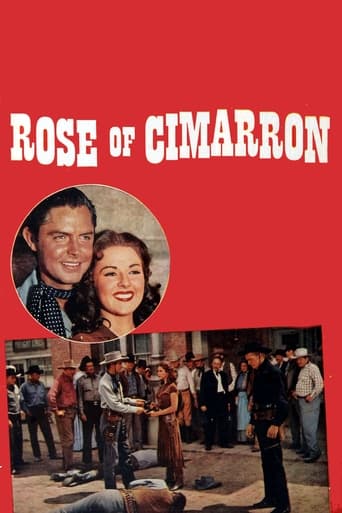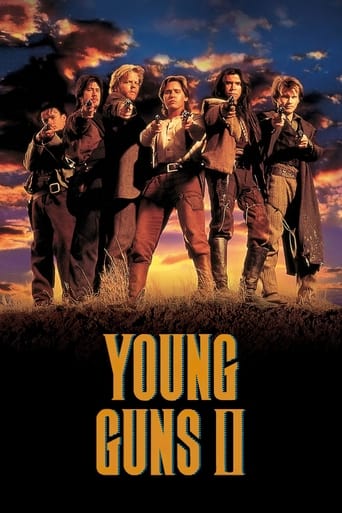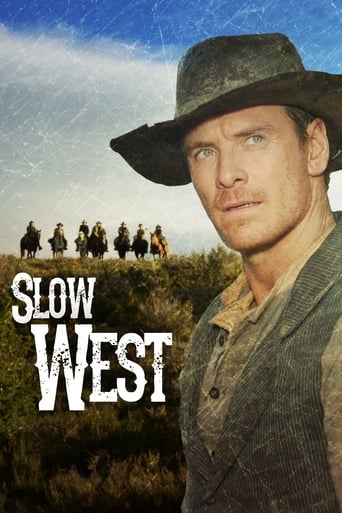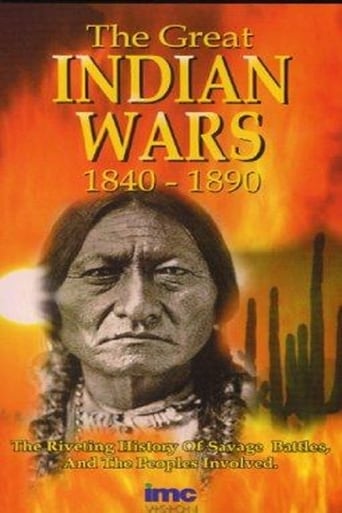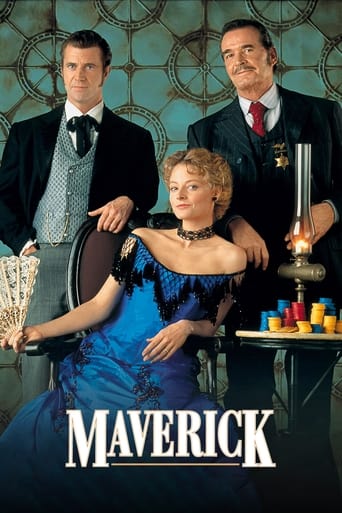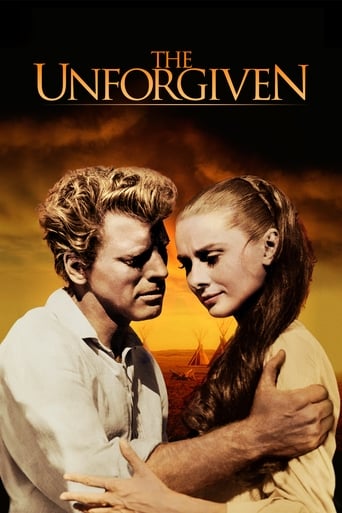Flaming Star (1960)
Sam Burton's second wife is a Kiowa, and their son is therefore born mixed-race. When a struggle starts between the whites and the native Kiowas, the Burton family is split between loyalties.
Watch Trailer
Cast


Similar titles
Reviews
Just perfect...
When a movie has you begging for it to end not even half way through it's pure crap. We've all seen this movie and this characters millions of times, nothing new in it. Don't waste your time.
Fun premise, good actors, bad writing. This film seemed to have potential at the beginning but it quickly devolves into a trite action film. Ultimately it's very boring.
A movie that not only functions as a solid scarefest but a razor-sharp satire.
Hollywood had by 1960 honed the Western to a fine edge and FLAMING STAR is a testimony to that. It's a polished product with a compelling story, beautiful color and Cinemascope showing wide open vistas.There are biblical allusions a'plenty in this film. First is an underscoring of the injunction against marrying outside one's own people. The tragic lives of Esau, Samson, and Solomon testify to the whirlwind that is reaped when one marries strange women with strange gods. Sam Burton married the Indian squaw Neddy and, while appearing to be assimilated, she still clung to her Kiowa superstitions, such as the flaming star of the title. These superstitions she passed onto her half-breed son Pacer, sowing seeds of dissent.Over Neddy's grave Sam recites Genesis 3:20 about Eve being the mother of all living. That sets up the Cain and Abel conflict between Clint and Pacer, which fortunately isn't followed through to the bloodshed. Their eventual reconciliation stirs up memories of Jacob and Esau and the younger brother saving the older evokes Joseph and his brothers.The story enjoys added heft due these parallels to age-old stories, whether or not author Cliff Huffaker ever drew upon them intentionally.Joining Elvis were three actors on the cusp of small screen fame. John McIntire was in a lot of films but arguably it would be his replacing the late Ward Bond on WAGON TRAIN soon after FLAMING STAR was released that made him a household name. Steve Forrest was a few years shy of starring in THE BARON and later S.W.A.T. where his handle "Hondo" was a nod to the great Western. Barbara Eden, in a smaller role than her billing led me to anticipate, would five years later co-star on I DREAM OF JEANNIE.Rodolfo Acosta, fondly remembered as Vaquero on THE HIGH CHAPARRAL, was excellent as Kiowa chief Buffalo Horn. Dolores Del Rio played Neddy with dignity, at least until the scene where she runs out into the night like a woman possessed. Both Acosta and Del Rio were Hispanic, yet each played American Indians with such aplomb to silence the P.C. police who feel compelled to cry "red face" about cross-ethnic casting.Rounding out the cast are familiar faces like Karl Swenson, Richard Jaeckel, Ford Rainey, and an especially loathsome Tom Reese as an uncouth Indian-hating trapper. L.Q. Jones is also on hand. Jones had a bigger role in LOVE ME TENDER but went uncredited. He's credited here, but he hardly earns it before a tomahawk is buried in his forehead.Elvis right out of the gate in LOVE ME TENDER had proved his acting abilities. In FLAMING STAR he sings only the opening theme song and a forgettable, high-spirited song at the birthday party. He played his character so well it was easy to forget this was Elvis.The story does some light philosophizing on prejudice, reflecting the era in which it was released, which was just before Christmas 1960, with John F. Kennedy the president-elect and the civil rights movement underway. As Pacer storms out to join the Kiowa, Clint reminds him he's civilized. But Pacer points to the hateful bigots in town who see all Indians as murdering savages. If that's civilization, he wants no part of it. And who can blame him? But Buffalo Horn is guilty of painting with the same broad brush, seeing all whites--men, women, and children--as intruders to be eradicated from his land.The story doesn't delve deep into these issues, but raises the questions. The solution appears to lie with a remnant of reasonable people, like Sam, Clint, and Roslyn, who judge each person individually. The doctor's daughter has no fear of Pacer, knowing him as a family friend and not a threat. In bringing about racial harmony, the children will lead.The ending felt rushed and was unsatisfactory; for example, the climactic battle with the Kiowa occurs off screen. Since he lived to ride into town, did Pacer defeat the whole tribe single-handedly? On the city limits of civilization, Pacer reverts to paganism, turns and rides off to the hills to die a Kiowa's death. Suddenly the film closes with Steve Forrest's embarrassing parody of SHANE.A good film even if a flawed one, and a muddled one in its philosophizing that came across more as grasping for relevance circa 1960. McIntire and Forrest add weight to the movie, and Elvis elevates it above average. Worth seeking out.
This is an extremely well done, well directed & well acted excellent western about racial hatred & prejudice. The explosive conflict between the white settlers & the native American Indians the Kiowa's. Elvis in a very straight dramatic role plays Pacer Burton the half white half red caught in the middle & torn between his loyalty & allegiance to the 2 races. The story is very serious & compelling & filled with tension & action & graphic violence throughout except for the opening which is lighthearted with the birthday party scene for Pacer's brother Clint (Steve Forrest) as Elvis breaks into the only song he sings in the entire movie.This movie was originally meant for Marlon Brando & Frank Sinatra to star in as the brothers played by Elvis & Steve Forrest. It has an excellent cast with John McIntire & Dolores Del Rio as the white father & Indian mother. This is NOT a typical Elvis movie & Elvis really rises to the occasion & really delivers the goods as he shows what a great actor he was when he was given the right vehicle to showcase his dramatic acting ability. Movies like "Flaming Star & "Wild In The Country" gave Elvis the type of roles he wanted.But unfortunately Elvis' acting side was never really promoted & exploited enough to overshadow his "image" as a singing entertainer. We have The Col Tom Parker to thank for that, he knew how to manage Elvis as a singer but not as an actor. Most of his films were just platforms to sell his image & to get his music across.It's a toss up between "King Creole" & "Flaming Star" but I think Flaming Star is easily Elvis's best movie because he's not playing a singer & bursting into a song every 10 minutes. In "King Creole", "Jailhouse Rock" & "Loving You" & "Roustabout" he portrays singers & the films are used to sell his music as well as displaying his acting talents. But in "Flaming Star" the music completely takes a back seat to his acting to the point where you forget he's a singer. It's a great rare moment watching Elvis step into a deep acting role & not just being "Elvis". Another film that almost matches this is the later western "Charro" another serious movie with no songs at all except for the opening credits. Elvis really should've done more westerns & other dramas & should've kept his singing & acting careers separate. Imagine Elvis in "Thunder Road" with Robert Mitchum. How cool would that've been ? Elvis wanted the role of Joker Jackson in "The Defiant Ones", imagine Elvis as a convict chained to Sidney Poiter ? That would've been explosive ! Elvis could've done so much more as an actor. Watch this movie !!
Elvis Presley really stretched his acting talents to the limit in Flaming Star. Though the singing King is kept to a minimum, Flaming Star is one of his finest acted films. And musically the title song which Elvis sings over the opening credits is a great one for him.The only other musical number is right at the beginning of the film where Elvis sings a country hoedown during a party. Right after that the world of Elvis's character Pacer Burton falls apart. He's the son of John McIntire and his wife Dolores Del Rio who is a Kiowa Indian. The rest of the family consists of older brother Steve Forrest. The Kiowas with their new chief Rudolfo Acosta go on the warpath and when their formerly friendly neighbors turn on them the Burtons are all alone on their Texas frontier spread.Being of mixed race Presley feels the conflict from within. Elvis under the direction of Don Siegel gives a wonderful performance with pain registering from every pore every minute he's on screen when the Kiowa War starts. Flaming Star is the most negative film Elvis Presley ever did in his career. It's a stinging indictment of racial prejudice, one of the best ever put on screen. Elvis rarely stretched his talents on the screen like this and Flaming Star is one of his films that's quite a bit more than a showcase for his music.
"Sam Burton's second wife Neddy is Indian, their son Pacer a half-breed. As struggle starts between the whites and the Kiowas, the Burton family is split between loyalties. Neddy and Sam are killed; Pacer sides with the Indians, his half-brother Clint with the whites." It's a nice change to see an Elvis movie without almost any singing for once. In this movie, the focus is not on beautiful women or the soundtrack, but the focus is on Elvis' character, Pacer, who is torn between staying with the whites, or siding with the Indians. The acting is also wonderful and believable. Bottom line is, you don't have to be an Elvis fan to see this great movie.

